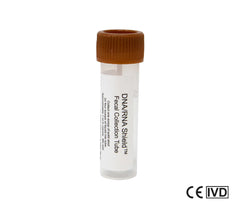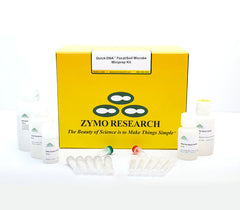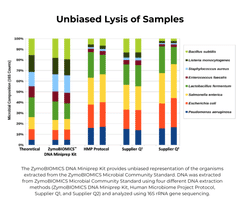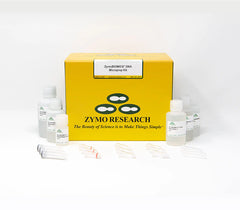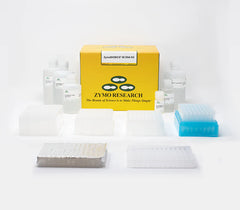Fecal Collection Kits and Devices
Fecal collection kits and devices for the collection, research and diagnostic analysis of stool samples. Reagent included in fecal collection kits and devices inactivate all infectious agents and protect the genetic integrity and microbiome profile of the fecal sample. A great compliment to our fecal sample collection products are our innovative fecal kits that are designed for easy, reliable, and fast isolation of total RNA and DNA.
What Are Fecal Collection Kits Used For?
Fecal collection kits have a wide variety of uses that are most useful when trying to monitor or study large populations. For example, they can be used for things like sequencing to analyze variants of viruses. With this fecal collection kit stool specimens on a range of media can be stored safely at room temperature which is very useful for large epidemiological studies. In a typical kit, it will contain a fecal collection device and the necessary tools to safely extract samples. Our fecal collection devices will also contain our reagent which will allow the sample to be stored at room temperature and transported safely without worry of degradation.
What to Look For in a Fecal Collection Device
Fecal samples collected in a fecal collection device can uncover critical information that can be useful for many clinical diagnoses or studies. Many times, a stool culture is used to identify possible bacterial infections all throughout the gastrointestinal tract. This can unveil valuable information that might lead to more specific screening tests and help narrow down a diagnosis. Researchers or clinicians will find our fecal collection kit essential as it includes disposable personal protective equipment for safety, collection tubes with the collection spoons and a leak-proof lid to seal the tube, as well as an envelope for exportation if necessary.
What Information and Data Is Gained From a Stool Sample?
Like previously mentioned, fecal collection samples are commonly used to identify possible bacterial infections in the gut. Laboratory analysis of stool samples includes things like microbiologics tests, microscope examination, and chemical tests. Features of the fecal sample such as color, consistency, quantity, shape, and odor are all recorded and help with diagnosis. These characteristics will assist in diagnosis of conditions such as: pancreatic insufficiency, fat malabsorption, internal bleeding of the digestive tract, certain infections like salmonella or E. coli, and inflammatory bowel diseases.
What's Next For Fecal Collection?
The future of fecal collection is exponential. One of the most applicable and relevant uses is seen during the pandemic to help analyze and sequence viral genomes. With analysis of human stool and wastewater we can monitor which viral variants are most abundant in the population weeks before we start to see this variant become widespread throughout the community. Another huge application for fecal collection studies is in fecal microbiota transplant. This procedure is a novel and revolutionary treatment that has proven effective at treating devastating bacterial infections like Clostridioides difficile which affects more than 500,000 Americans each year and kills nearly 30,000. The idea behind it is to transfer fecal matter from healthy donors, which will be determined with fecal collection kits, and transfer it to suffering patients to restore gut microbes. Scientists are expecting these therapies to make an impact on many diseases ranging from diabetes to cancer.



